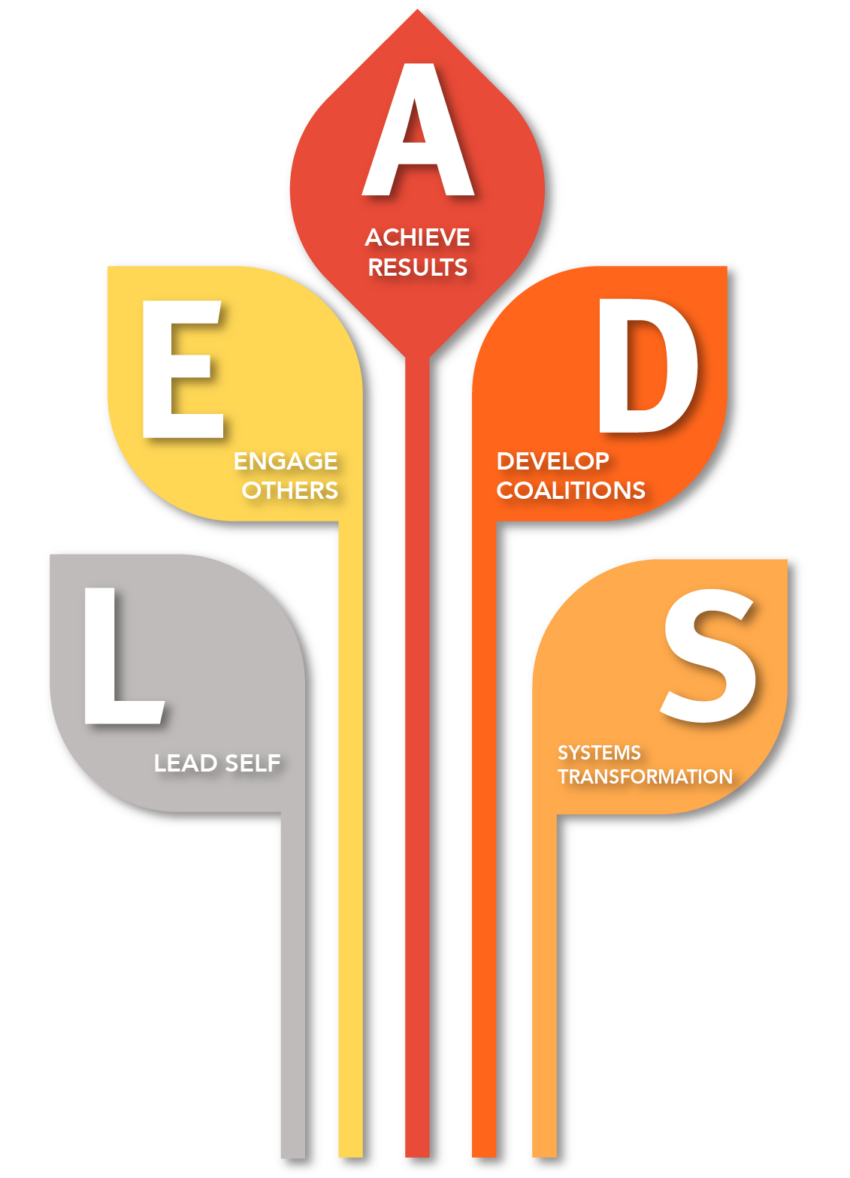Lead Self

Self-motivated leaders…
Are self aware
They are aware of their own assumptions, values, principles, strengths, and limitations.
Manage themselves
They take responsibility for their own performance and health.
Develop themselves
They actively seek opportunities and challenges for personal learning, character building, and growth.
Demonstrate character
They model qualities such as honesty, integrity, resilience, and confidence.
Engage Others

Engaging leaders….
Foster development of others
They support and challenge others to achieve professional and personal goals.
Contribute to the creation of healthy organizations
They create engaging environments where others have meaningful opportunities to contribute and ensure that resources are available to fulfill their expected responsibilities.
Communicate effectively
They listen well and encourage open exchange of information and ideas using appropriate communication media.
Build teams
They facilitate environments of collaboration and cooperation to achieve results.
Achieve Results

Goal-oriented leaders…
Set direction
They inspire vision by identifying, establishing, and communicating clear and meaningful expectations and outcomes.
Strategically align decisions with vision, values, and evidence
They integrate organizational missions and values with reliable, valid evidence to make decisions.
Take action to implement decisions
They act in a manner consistent with the organizational values to yield effective, efficient public-centred service.
Assess and evaluate
They measure and evaluate outcomes, compare the results against established benchmarks, and correct the course as appropriate.
Develop Coalitions

Collaborative leaders…
Purposefully build partnerships and networks to create results
They create connections, trust and shared meaning with individuals and groups.
Demonstrate a commitment to customers and service
They facilitate collaboration, cooperation, and coalitions among diverse groups and perspectives aimed at learning to improve service.
Mobilize knowledge
They employ methods to gather intelligence, encourage open exchange of information, and use quality evidence to influence action across the system.
Navigate socio-political environments
They are politically astute, and can negotiate through conflict and mobilize support.
Systems Transformation

Successful leaders…
Demonstrate systems/critical thinking
They think analytically and conceptually, questioning and challenging the status quo, to identify issues, solve problems, and design and implement effective processes across systems and stakeholders.
Encourage and support innovation
They create a climate of continuous improvement and creativity aimed at systemic change.
Orient themselves strategically to the future
They scan the environment for ideas, best practices, and emerging trends that will shape the system.
Champion and orchestrate change
They actively contribute to change processes that improve health service delivery.






